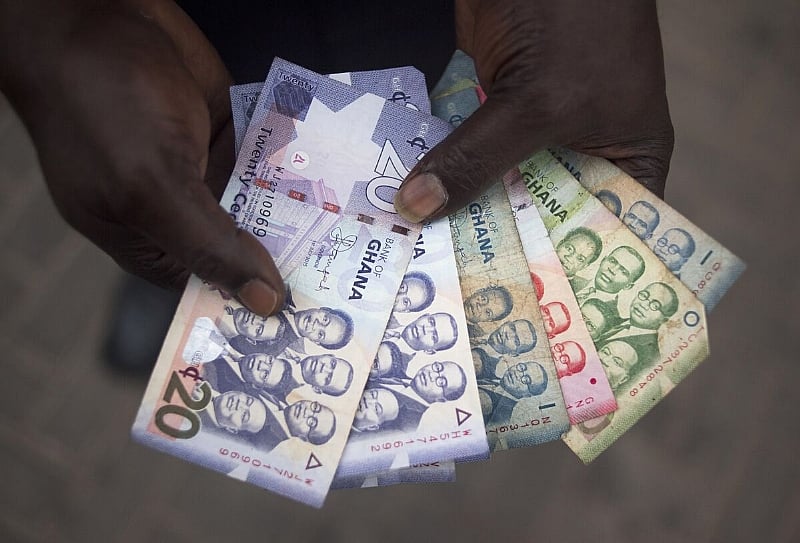The Ghanaian cedi experienced mixed fortunes against the US dollar on Tuesday, January 7, 2025, appreciating marginally in its buying rate but depreciating slightly in its selling rate. According to Cedirates.com, a reputable platform for currency information in Ghana, the cedi’s buying rate stood at GHS14.62, representing a 2 pesewas gain compared to Monday’s average. However, the selling rate slid by the same margin to GHS15.14. This indicates a slight widening of the spread between buying and selling rates, potentially reflecting a degree of market uncertainty or volatility.
At forex bureaus, the cedi traded at a buying rate of GHS15.30 and a selling rate of GHS15.80, showcasing a higher exchange rate compared to the interbank market. This difference reflects the premiums charged by forex bureaus for their services and their responsiveness to market dynamics. The interbank rates, typically used for larger transactions between banks, saw the cedi trading at a buying rate of GHS14.69 and a selling rate of GHS14.71 against the US dollar. This narrower spread within the interbank market suggests greater stability and efficiency in large-volume transactions.
Against other major currencies, the cedi also exhibited a varied performance. The British Pound Sterling averaged GHS18.09 for buying and GHS18.91 for selling, while the Euro traded at GHS14.99 and GHS15.71 for buying and selling, respectively. These rates indicate the relative strength of the Pound and Euro against the cedi, with the Pound commanding a higher exchange rate. The Bank of Ghana’s interbank market reflected similar trends, quoting a selling price of GHS18.39 for the Pound Sterling and GHS15.27 for the Euro. These interbank rates, serving as benchmark rates, influence the broader forex market in Ghana.
Remittance services like LemFi and Afriex offered competitive rates for sending money to Ghana from abroad. LemFi offered a rate of GHS14.60 per US dollar and GHS18.17 per British Pound, while Afriex offered slightly more attractive rates of GHS13.77 per US dollar and GHS17.21 per British Pound. These remittance rates, often more favorable than traditional banking channels, highlight the increasing importance of these platforms in facilitating international money transfers and influencing the overall currency exchange landscape. For Euro transfers, Afriex offered a selling rate of GHS14.35 per Euro, while LemFi quoted a slightly higher rate of GHS15.10 per Euro.
For online subscription services like Netflix, Spotify, and Apple Music, payments processed through Visa and Mastercard were converted at a rate of GHS15.81 per US dollar. This rate, likely reflecting the card processors’ fees and exchange rate margins, represents the cost borne by Ghanaian consumers subscribing to international online services. The disparity between this rate and the interbank or remittance rates underscores the complexities and various factors influencing currency exchange rates in different transactional contexts.
In conclusion, the Ghanaian cedi’s performance against major currencies on January 7, 2025, was characterized by subtle fluctuations and varying rates across different exchange platforms. While the cedi registered a minor gain against the US dollar in its buying rate, it also experienced a slight depreciation in its selling rate. The differences in exchange rates between forex bureaus, interbank markets, and remittance services underscore the diverse factors impacting currency exchange, including transaction volumes, service fees, and market dynamics. Furthermore, the rates applied to international online subscriptions highlight the additional costs involved for Ghanaian consumers engaging in cross-border transactions. These multifaceted exchange rate variations reflect the intricacies of the Ghanaian foreign exchange market and its interconnectedness with global financial systems.


